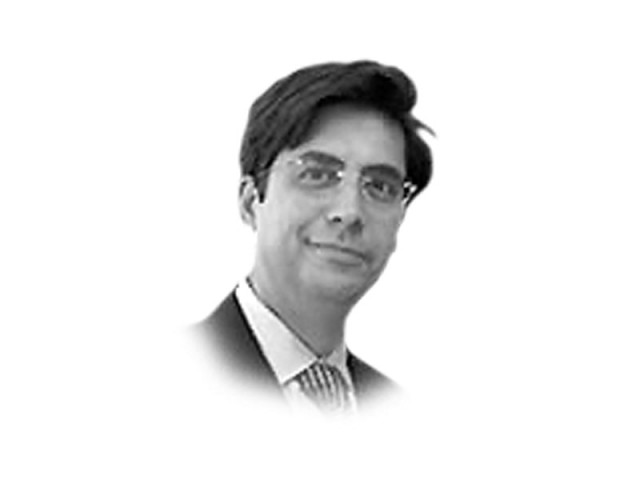Gresham’s law and public morality
If elections to elite body of skilled advocates turns on personality issues, what hope is there for rest of country?

Gresham’s law and public morality
At the same time, despite the intensity of the campaigning, not a single candidate for a single office of the SCBA made any substantive promise. No manifestos were printed. Certainly, none were distributed. No one tried to win my vote by saying that they would seek to improve the problems faced by those who actually argue before our country’s Supreme Court. Instead, to the extent anybody bothered to make a pitch for my vote, it was based entirely on relationships: vote for my friend, vote for my cousin, vote for my political compatriot.
Lest you think this is not a big deal, let me explain. For at least the past two decades, and more specifically over the past five years, the SCBA has been one of the more important political organisations of this country. When the Chief Justice was removed by General (retd) Pervez Musharraf on March 9, 2007, the movement for his restoration was led in part by Munir Malik, the then president of the SCBA. Munir Malik was succeeded as president of the SCBA by Aitzaz Ahsan, the lawyer for the Chief Justice. Aitzaz Ahsan then led the second phase of the lawyers’ movement against the imposition of Emergency by General (retd) Musharraf on November 3, 2007, which eventually resulted in the restoration of the Chief Justice and the other ousted judges. Even today, while the bar associations of the various High Courts and district courts remain independent and very significant entities, the SCBA occupies a privileged position in the legal fraternity by virtue of its connection with the apex Court.
There is also no shortage of issues for the SCBA to discuss. The tenure of the current chief justice has seen an unprecedented expansion in the role of the Supreme Court. The Court has become completely identified in the public eye with an aggressive commitment to public interest litigation, a development which is highly debatable, both in legal and political terms. As professionals who practise at the Supreme Court, SCBA candidates should obviously have a position on this issue just like they should have ideas on how to deal with the massive backlog of cases in the Supreme Court. But none of the candidates bothered to express any thoughts on these issues to their voters.
Entry into the SCBA requires 10 years of practice at the High Court level followed by a rigorous interview and selection procedure. Members of the SCBA can therefore — with some justification — regard themselves as the cream of Pakistan’s legal crop. And yet, I repeat, not a single candidate in the SCBA elections bothered to make any substantive argument. More significantly, I seem to be the only person bothered by this omission.
My question is this: if the elections to an elite body of highly skilled professionals are to turn on nothing more than personality issues, what hope is there for the rest of this country? We hear so often that democracy cannot flourish in a country populated by poor illiterates but the membership of the SCBA is neither poor nor illiterate. We hear equally often that the only cure for bad democracy is more democracy. The SCBA has been holding annual elections for decades. Why, then, do the SCBA elections present the same sad picture as our political process?
Charlie Munger, Warren Buffett’s partner and a business legend in his own right, argued some years ago that while Gresham’s law had become obsolete in terms of currency, it could nonetheless be applied to societal mores.
For those not up to date with economic theory, Gresham’s law is the contention that bad money drives out good. In other words, if a state starts diluting the amount of precious metal in its coins, people will start hoarding good coins and only using adulterated coins.
Munger’s variation of Gresham’s law is that bad morality drives out good or, in other words, that public morality is in a race to the bottom. Once one person cuts corners, everybody else starts cutting corners too because that is the only way to survive. Pretty soon, there is nobody left who does not cut corners.
What, then, is the solution? Munger does not spell it out, but the answer lies in the works of Charlie Frankel, another thinker quoted by him during the same lecture. Frankel was an American philosopher and humanist who argued that systems of government were “responsible” in direct proportion to the degree that the people who made the decisions bore the consequences. At least to my mind, that simple argument explains more about Pakistan’s current state than all of the books titled using some variation of “The World’s Dangerous Country”.
Coming back to the topic of this column, I am forced to concede that the SCBA has become what it is because of the apathy of lawyers like myself. Put simply, SCBA candidates do not care about substantive issues because lawyers like myself do not force them to care. Well, starting today, that is going to change.
The next SCBA elections are exactly a year away. More importantly, the SCBA membership is small enough that even blocks of 10 or 20 voters count significantly. Assuming I can round up at least 10 votes, the plan is to put together a set of policy reforms and see if we can get any of the major candidates to bite. It may or may not work. But at least I’ll feel better when the next SCBA election comes around.
Published in The Express Tribune, November 6th, 2012.














COMMENTS
Comments are moderated and generally will be posted if they are on-topic and not abusive.
For more information, please see our Comments FAQ